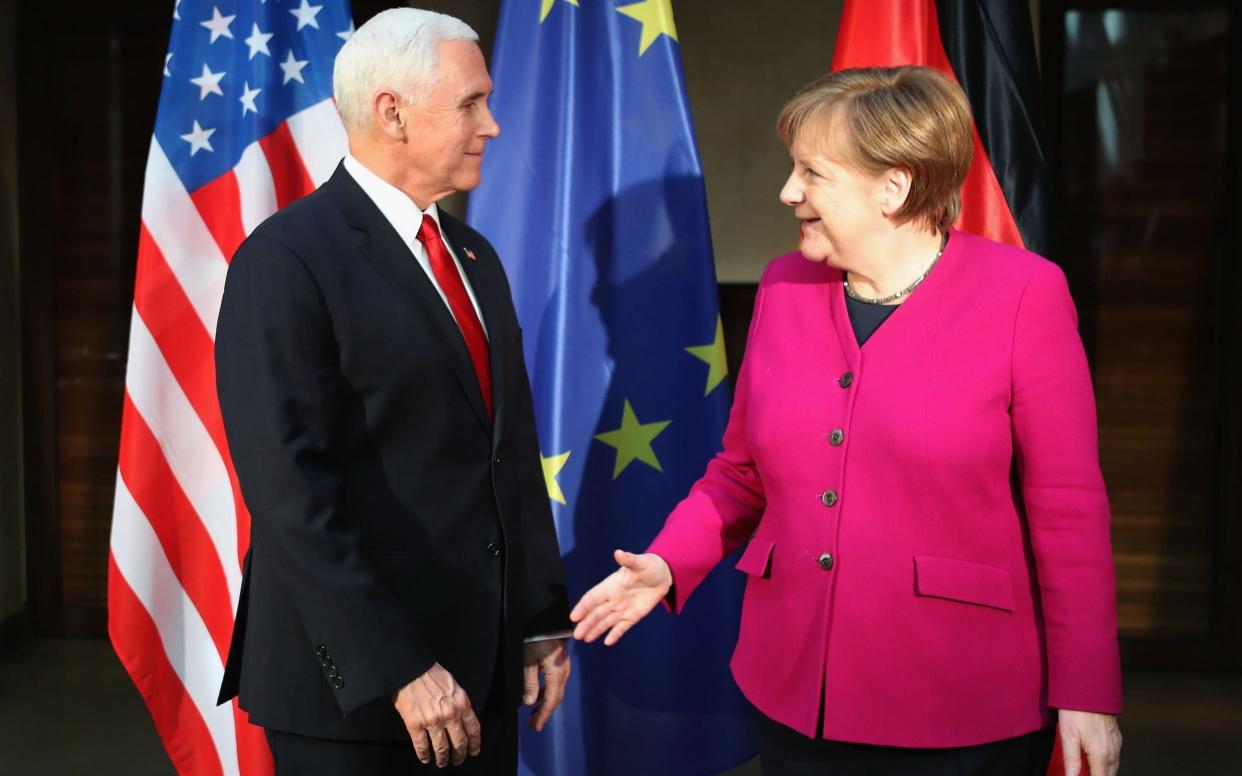Merkel says US withdrawal from Syria will boost Russia and Iran

Angela Merkel yesterday warned the planned withdrawal of US troops from Syria following the defeat of Isil and the collapse of its caliphate risks handing the upper hand to Iran and Russia.
The warning at the Munich Security Conference came just moments before US Vice President Michael Pence took to the stage to berate Germany and other European states for not meeting their Nato spending commitments and failing to follow the US in pulling out of the international nuclear accord with Iran.
The war of words highlights the differing approaches between the US and EU on how best to tackle what they agree are common strategic threats - Russia and Iran.
It may also raise the prospect of a deal in which the US keeps a military presence in Syria to support its allies in return for the EU unwinding its support for the nuclear deal with Iran.
Once mopping up operations after Isil falls are complete, the US is expected to start withdrawing its 2,000 troops in line with an announcement first made by President Donald Trump in December.
The move is tactically controversial because it is expected to cause others with significant troops in Syria, including France and Belgium, to withdraw their forces. Strategically it would create a vacuum that others will fill, say Merkle and others.
"Is it a good idea for the Americans to suddenly and quickly withdraw from Syria? Or will it once more strengthen the capacity of Iran and Russia to exert their influence?", Merkel said at the conference.
In his speech at the conference, Pence said troops would return home but the US would maintain “strong presence” in the region.
The US withdrawal also raises major questions about the future of the Kurdish-led Syrian Democratic Forces who have driven Isil out of their last enclave. US army general Joseph Votel who oversees US forces in the Middle East as head of Central Command, said the US should keep arming and aiding the group, provided tit keeps up the pressure on Islamic State.
The recommendation is one of the strongest signs yet of US military hopes for an enduring partnership with the SDF despite the concerns of Nato ally Turkey, which says Kurdish SDF fighters are terrorists.

 Yahoo News
Yahoo News 
